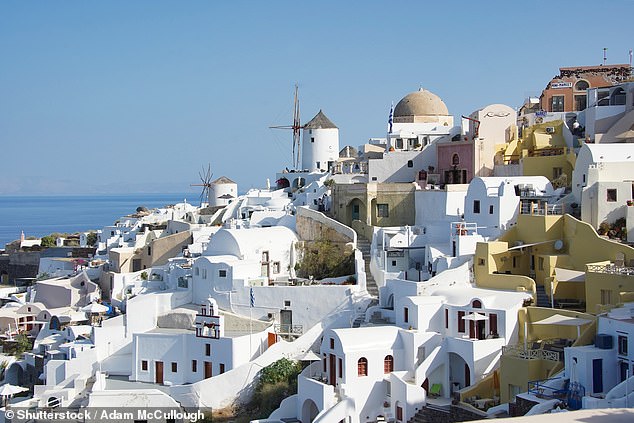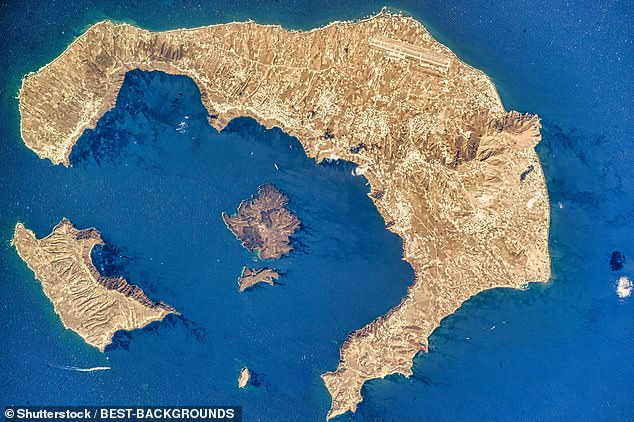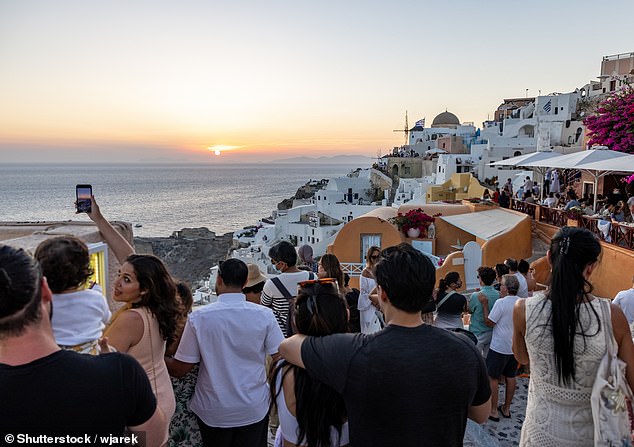A leading European holiday destination could be under threat of a volcanic eruption.
Santorini, an island in the southern Aegean Sea, is one of Greece‘s leading holiday destinations, attracting around 3.4million tourists each year.
But the dreamy island was first created by a volcanic eruption. And a series of earthquakes earlier this year has left scientists wondering whether the volcano’s next eruption could threaten the island.
While the last volcanic eruption in Santorini was in 1950, scientists told the BBC there was a ‘period of unrest’ as recently as 2012.
Professor Isobel Yeo, a volcanic expert from Britain’s National Oceanography Centre, is currently investigating Santorini’s underwater volcanoes.
The expert is one of a team onboard British royal research ship, The Discovery, looking at Santorini’s caldera.
Yeo told BBC News that the marine volcanoes are ‘capable of really big, really destructive eruptions’.
The scientist added: ‘We are lulled into a sense of false security if you’re used to small eruptions and the volcano acting safe.

Santorini, an island in the southern Aegean Sea, is one of Greece ‘s leading holiday destinations attracting more than three million tourists a year

The dreamy island was first created by a volcanic eruption and a series of earthquakes earlier this year has left scientists wondering if the next eruption could threaten the island

The scientist said: ‘This research is important because it will inform local people how active the volcanoes are, and it will map the area that will be forbidden to access during an eruption’
‘You assume the next will be the same – but it might not.’
Santorini’s volcano is not expected to erupt imminently but scientists believe it is only a matter of time.
The scientists are currently creating a 3D map they hope will help to predict when an eruption could take place.
Professor Nomikou, a member of Greece’s government emergency group, said she was inspired to become a geologist after hearing stories about past eruptions from her grandfather.
The scientist said: ‘This research is very important because it will inform local people how active the volcanoes are, and it will map the area that will be forbidden to access during an eruption.’
Nearly half of the island’s 11,000 residents fled Santorini during the earthquakes earlier this year.
Greece’s tourism board has said the island is now open and operating as normal, after it got the ‘green light’ from scientists.







